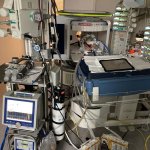
News • Neonatology
Portable MRI in pediatric ECMO patients: promising premiere
The neonatology team at the University Hospital Bonn (UKB) has conducted the world's first study of children receiving ECMO therapy using a mobile MRI scanner.

The neonatology team at the University Hospital Bonn (UKB) has conducted the world's first study of children receiving ECMO therapy using a mobile MRI scanner.
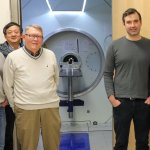
US researchers have developed a way to use MRI scanning to map body cell metabolism, opening up new possibilities for detecting cancers and revealing if a tumor is responding to treatment.

It’s clear that radiology is lacking in the “green” department: healthcare still causes a large share of global greenhouse gas (GHG) emissions, not least due to diagnostic imaging. Dr Sarah Sheard from Imperial College Healthcare, UK, invited her ECR audience to take a closer look at radiology’s climate footprint – and revealed ways to make the field more sustainable.
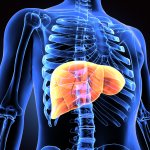
Omar Darwish, PhD student at King's College London, is researching new approaches to 3D MRE sequences for measuring liver fibrosis and inflammation simultaneously in obese patients.
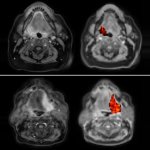
Imaging researchers have taken a major step towards their ultimate goal of identifying cancers that are starved of oxygen so that altered treatment can be used to target them more effectively.
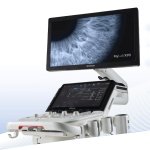
Italian biomedical and imaging company Esaote will be present at the ECR radiology congress in Vienna on March 1st - 5th, Expo X5 - Booth 517, to show its latest ultrasound, MRI and medical IT.
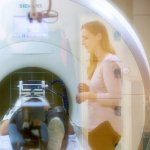
The world's first MRI scanner with a magnetic field strength of 14 Tesla will be built in Nijmegen. Its high sensitivity will allow scientists to image the brain in more detail.

At the ECR 2023 congress in Vienna, Austria, Fujifilm Europe will unveil new products, host an MRI symposium, and provide opportunities to meet the company's experts.
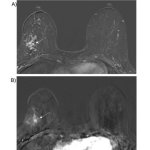
A new imaging approach using ultrafast MRI shows potential in predicting upgrade of ductal carcinoma in situ (DCIS) to invasive breast cancer at surgery.
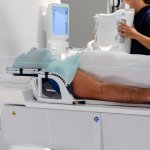
Philips is an active participant in the new European Federation for Cancer Images consortium (EUCAIM) – a project launched in the run-up to World Cancer Day 2023.

Compared to other common supplemental screening methods, breast MRI was superior at detecting breast cancer in women with dense breasts, according to a new study.
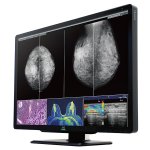
The CL-S1200 is a 30.9-inch color monitor with 12 megapixels for reporting medical images of various modalities such as CT, CR/DR, MR, ultrasound or mammography.
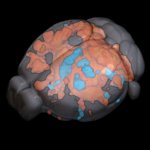
Researchers from Queensland have developed a new fMRI technique with vastly increased temporal resolutions, enabling them to capture the dynamics of brain activity at a sub-second level.
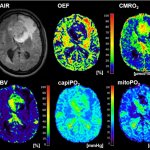
The distinction between primary tumors and metastases can be made quickly and accurately in brain tumors using radiomics and deep learning algorithms, a new study shows.
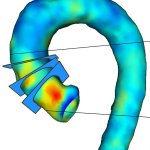
MRI-derived wall shear stress values predict pathological changes in the aortic wall in patients with ascending aortic dilatation. This can help identfy at-risk patients.

Medical imaging and healthcare IT company Esaote reports that it has completed the transition of its medical devices to comply with the new Medical Device Regulation (MDR).
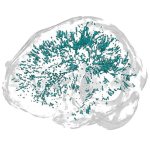
For the first time, a new study has identified enlarged perivascular spaces in the brains of migraine sufferers. Results of the study will be presented at the annual RSNA meeting.
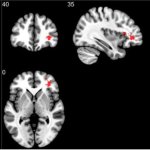
Using a special type of MRI, researchers have uncovered brain changes in patients up to six months after they recovered from Covid-19, according to a study being presented at the annual RSNA meeting.
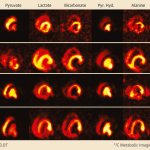
Swiss researchers developed a new MRI method to visualise metabolic processes in the body. Their objective is to improve the future diagnosis and treatment of heart disease.
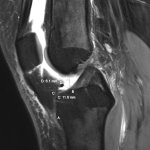
Magnetic resonance imaging (MRI) can reliably establish measurements for anterior cruciate ligament (ACL) “footprints” that are critical to the placement of grafts for reconstruction surgery.
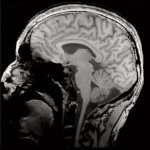
Siemens Healthineers presented its latest magnetic resonance tomographs designed for clinical and scientific use at the company's Shape 23 Keynote: The 3T Magnetom Cima.X and 7T Magnetom Terra.X.
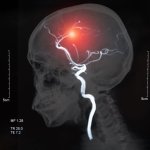
White matter hyperintensities (WMH) on the brain seen on MRI represent a biomarker associated with a 50/50 risk of death within five years after a first incident acute ischemic stroke (AIS) or transient ischemic attack (TIA).
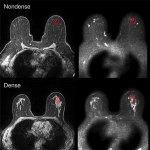
The risk of developing breast cancer is higher in breasts with high density. But why is that? Researchers at Linköping University have shown major biological differences that promote cancer growth.
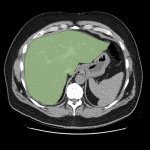
To assess diffuse liver disease, MRI is currently the modality of choice. New developments in artificial intelligence (AI) could tip the scales in favour of CT imaging. At ECR 2022 in July, experts showed how AI technology enables CT to quantify liver fat as exquisitely as MRI.

Women with high-risk breast lesions (HRLs) and no family history of breast cancer or BRCA mutations are generally considered to be at moderate risk of developing breast cancer. Breast cancer screening guidelines suggest breast MRI be considered as a supplement to mammography. But is this expensive exam necessary?